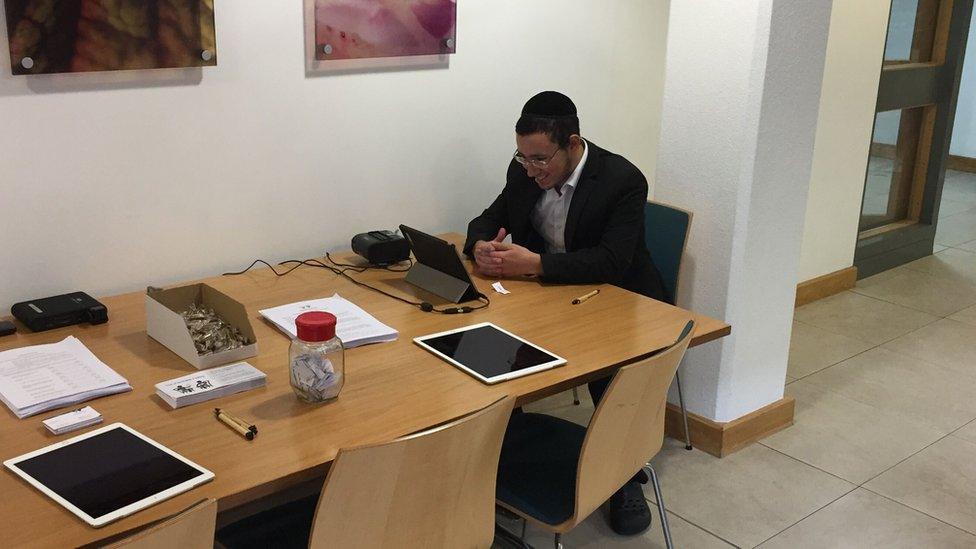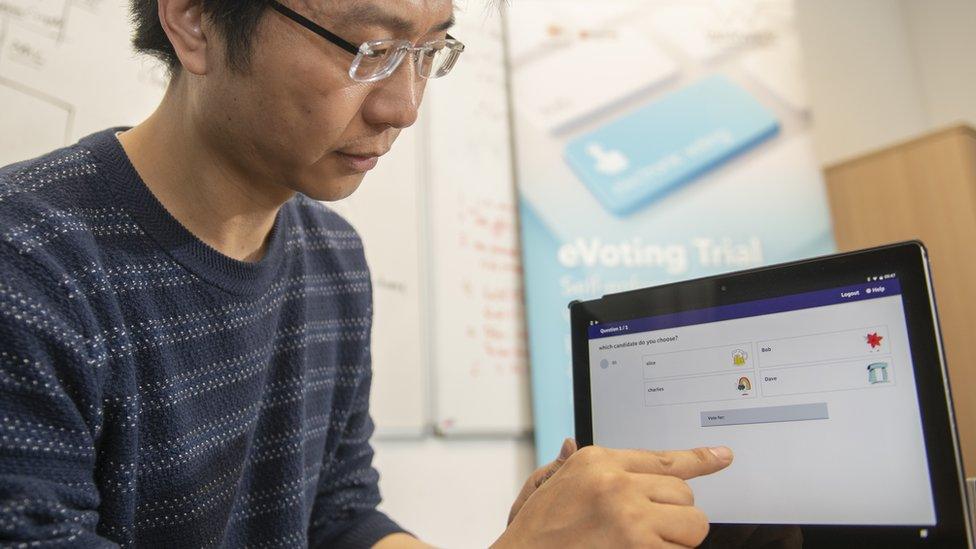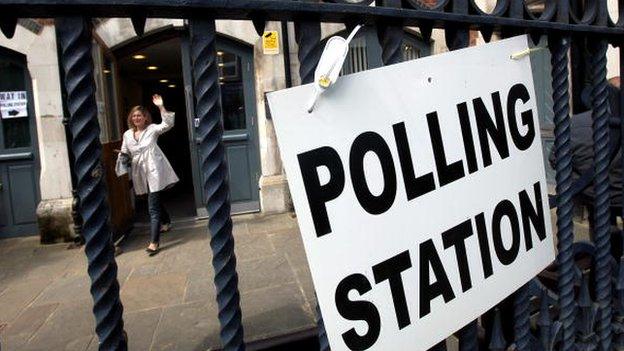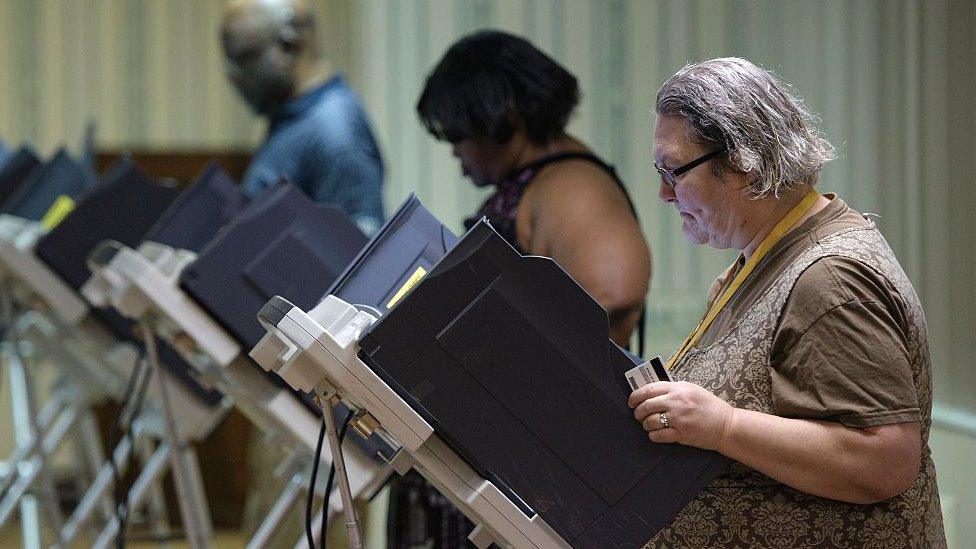E-voting by touch-screen trialled in local elections
- Published

Feedback had been positive, said the team who developed the new system.
Voters in Gateshead are being invited to vote twice in the local elections - via the traditional ballot box and on a touch-screen computer.
Only their ballot paper vote will count, with the e-voting just a trial.
E-voting could eventually transform elections, doing away with the need for an election count.
Several countries have experimented with such systems but security fears have held deployment back.
Anyone wanting to take part has to record their vote via a touch-screen computer at the polling booth by entering a passcode issued to them, selecting a candidate and then receiving a paper receipt.
All encrypted votes are published on the election website, where anyone will be able to look at the tally for each candidate.
The system will flag up if any e-vote has been illegitimately modified.
Pixelated votes
What made it different from previous systems was that it could be verified "end to end", said the team at Warwick University who developed it, with funding from the European Research Council and Innovate UK.

Prof Feng Hao has been working on the system with his team for six years
"Imagine a picture of London skyline. The picture is formed of millions of pixels. Each voter holds the key to one pixel, which is their vote. Every pixel is encrypted so it does not reveal any private information about the individual vote," said Feng Hao, professor of security engineering at the university's department of computer science.
"However, when all pixels are combined together, a picture is revealed, showing the election tally. If an attacker attempts to tamper with pixel values, or modify the election result, it will be publicly detectable because the mathematical relations between pixels will fail to be verified."
E-voting trials have previously been conducted in local elections in England, between 2002 and 2008, but discontinued.
Similar systems have also been trialled in the US, India, Brazil, Estonia, Norway and Switzerland.
E-voting can mean a variety of things, from voting via a device rather than a paper ballot to remote voting via smartphone.
'Faster and safer'
The system on trial in Gateshead has been six years in the making.
"Hopefully we will provide useful case studies to the voting law here in the UK, which is basically unchanged from over 100 years ago and has not accounted the many developments of modern digital technologies," said Prof Hao.
Prof Alan Woodward, from Surrey University's computer science department, said that the trick to making e-voting successful was "verifiability".
"Electronic voting has to come," he said.
"Not only does it make the process easier, thereby encouraging more people to vote, but it offers something that paper voting can't: verification that your vote was counted correctly.
"It also makes the whole process of counting potentially faster, as well as safer."
"Trials such as this, exercising e-voting systems in real election situations, are essential to look for the unexpected security issues.
"It's good to see a local authority willing to use the current elections as just such a trial environment, albeit that the actual votes will still be on paper."
- Published30 May 2017

- Published19 September 2018
